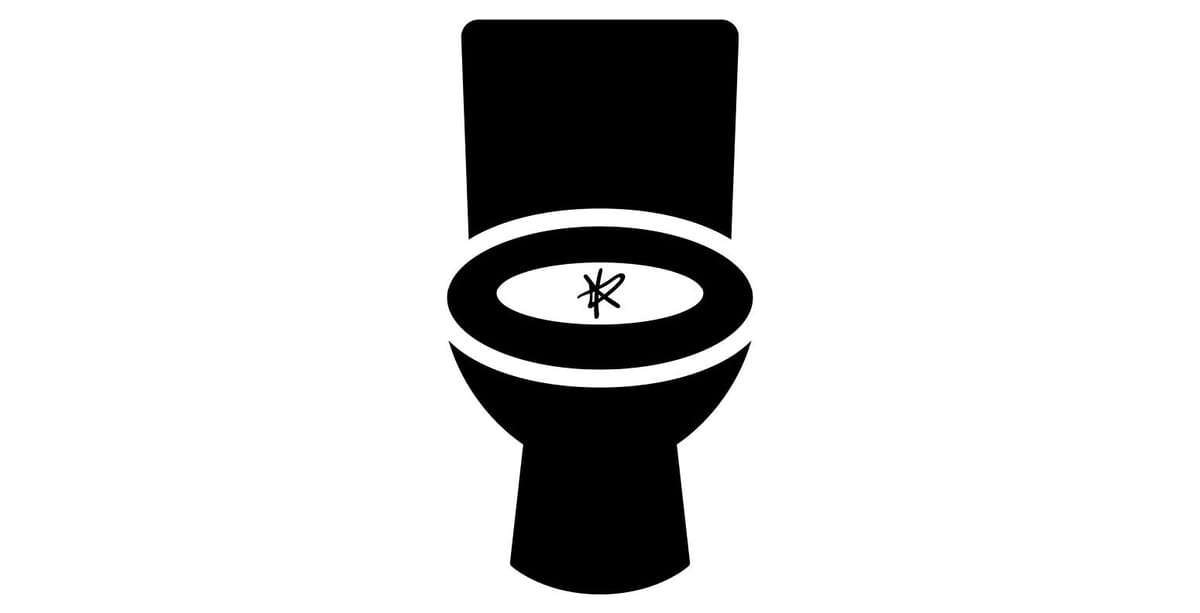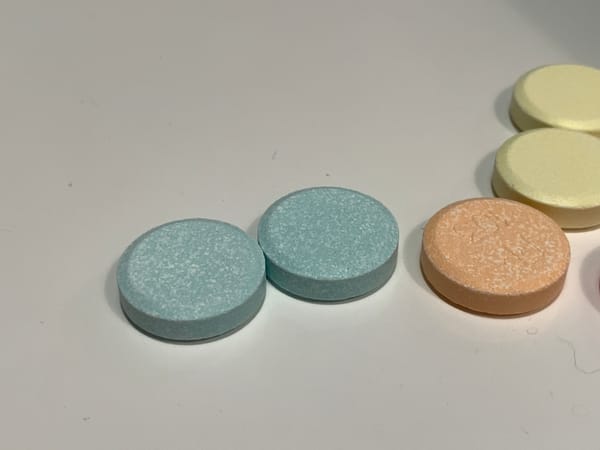Indignity Vol. 1 No. 2: Ambient E. coli.
MEDIA RELATIONS DEP'T.

Want to Hear a Journalism-Industry Complaint?

COMPLAINING ABOUT ONE’S last media job gives readers of a new newsletter a framing narrative, with a dissident perspective they can identify with, right? An indictment of the status quo. It says: this new publication is a departure from other publications; that's why we're asking you to read and subscribe to it.
So here goes: before I launched Indignity, I worked as the politics editor at Slate. And the office restroom at Slate was intolerable. I can't honestly tell you this is the reason, per se, that I left my job. But as I weighed the decision, it was clear to me that there was something deeply liberating about the thought of never seeing that restroom again.
Why? First of all, it failed the fundamental test of any office restroom: it did not actually belong to the office. Instead, it was a shared restroom for the entire floor of the building. If you require your employees to exit your office each time they want to pee, and then to re-enter the office, using their key, when they're done, your workplace is not providing its employees with a workplace restroom. I was waiting at an Avis branch the other day, and someone came in and asked if they had a restroom for customers, and they told them to go out and try the Starbucks up the block. When a new employee asks where the restroom is and you tell them to leave the office suite, you are giving them the same answer as the Avis people, and the answer is "Not here."
(Worse still are the offices where there's a communal restroom key, like at a coffee shop, or like a middle school hall pass, that you have to haul with you to and from the restroom. Where do you put the key while you're using the toilet? Where did everyone else who had the key put it, before it got to you?)
Secondly—and I'm sorry, but this is a space for telling unvarnished truths—by late afternoon, every single work day, the men's room was destroyed. I think there were four toilets and before day's end at least one and sometimes as many as three of them would be out of commission, the bowls entirely clogged up with muck and stuffed full of toilet paper wads. For this, I sincerely blamed the other tenants of the floor, who I believe were a sports agency and some outfit that put on endurance races, the latter of which even had "mud" in its name. I assumed they were sustaining themselves on creatine shakes and protein bars and Soylent, and we were all paying the price for it.
But it didn't matter whether or not Slate employees were the culprits because, as previously mentioned, we had to share the restroom with those other people. Every day, we had to confront the ruins of their digestion.
And then we had to leave the restroom. For this, there was not one door but two—an airlock of sorts, only rather than preserving the supply of breathable air, it was set up to preserve the supply of ambient E. coli. Both doors had handles you had to grasp with your newly washed hand and turn.
It seemed safe to assume that anyone who could leave a toilet in a state of complete devastation and walk away was not the sort of person who would be finicky about washing their own hands on the way out. Yet if you wanted to use a paper towel to open the double doors, you were stuck: the trash can was inside the main bathroom (with damp crumpled paper towels strewn on the floor all around it). Once or twice someone moved the trash can inside the airlock, for convenience, but it was immediately returned to its old unhelpful position, leaving you to carry a now-unsanitary paper towel all the way back to the office. Where you would have to open the office door anyway. Because the restroom was not in the office.

POLITICAL OBSERVATION DEP'T.
Here Is a Composite Animation of Bill de Blasio Drinking From a Mug


READER THOUGHT DEP’T.







